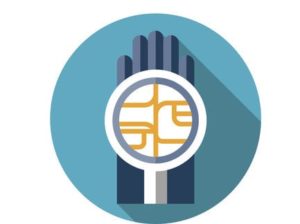Syracuse University (SU) has installed biometric palm readers at all five of its student dining centers on campus. The scanners are intended to provide students on meal plans with a contactless verification option during the COVID-19 pandemic.

The biometric program is completely optional, so students will still be able to swipe their SU student ID cards to redeem their meals. However, those who do opt into the system will be able to walk right up to the scanners and skip the line for those using the more traditional card-based method. Students who want to register their hands for the fast lane system will need to do so during business hours.
The palm scanners themselves are completely contactless, which mitigates the threat of contagion associated with shared touchpoints. To assuage concerns about privacy, SU insisted that it will not be collecting any images of student palms, and will instead be capturing a mathematical representation of a palm scan. The student’s palm will then be matched to that representation when they arrive at the cafeteria. The representation will also be encrypted, while SU claimed that it cannot be used to reverse engineer someone’s true biometric data.
The palm scanning service is being offered to any students on an unlimited or block meal plan. SU is hoping that the system will reduce the amount of wear and tear on physical SUID cards, which will in turn reduce costs since the school will not need to issue replacement cards as frequently.
While the use of campus palm scanners is relatively novel, several universities have tried to use mobile IDs to overhaul their student identification systems. The University of Tennessee, the University of Alabama, and Auburn University have all started issuing mobile IDs to their students, and in each case those mobile IDs can be used to gain access to campus facilities like cafeterias and dining halls.
Source: CR80 News
–
(Originally posted on FindBiometrics)

Follow Us